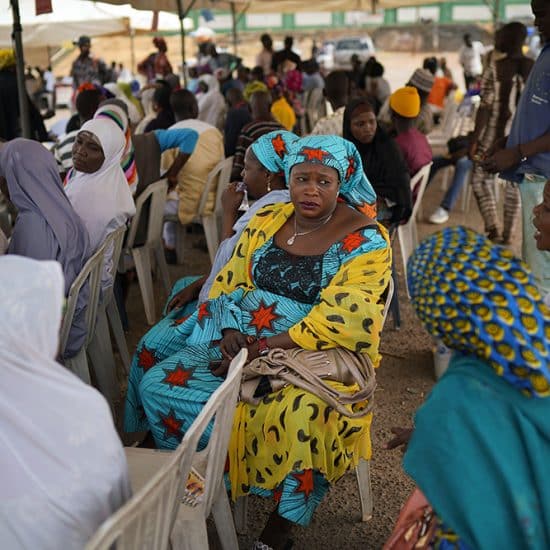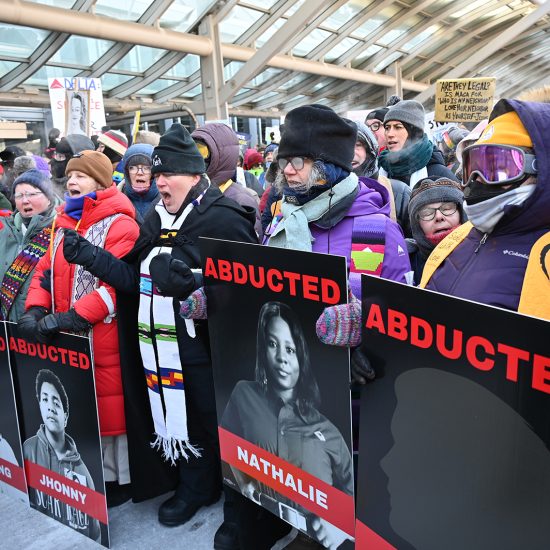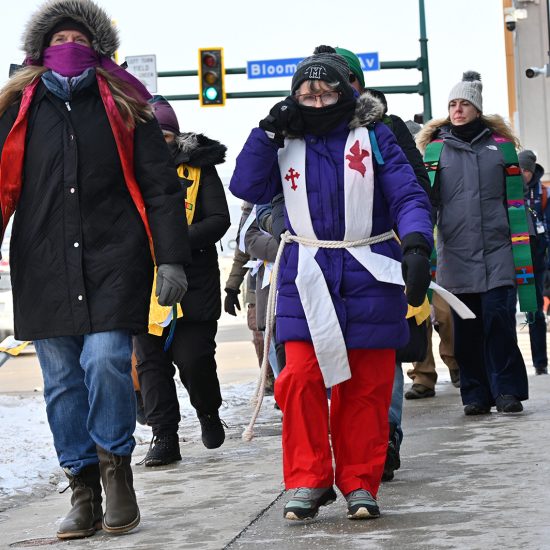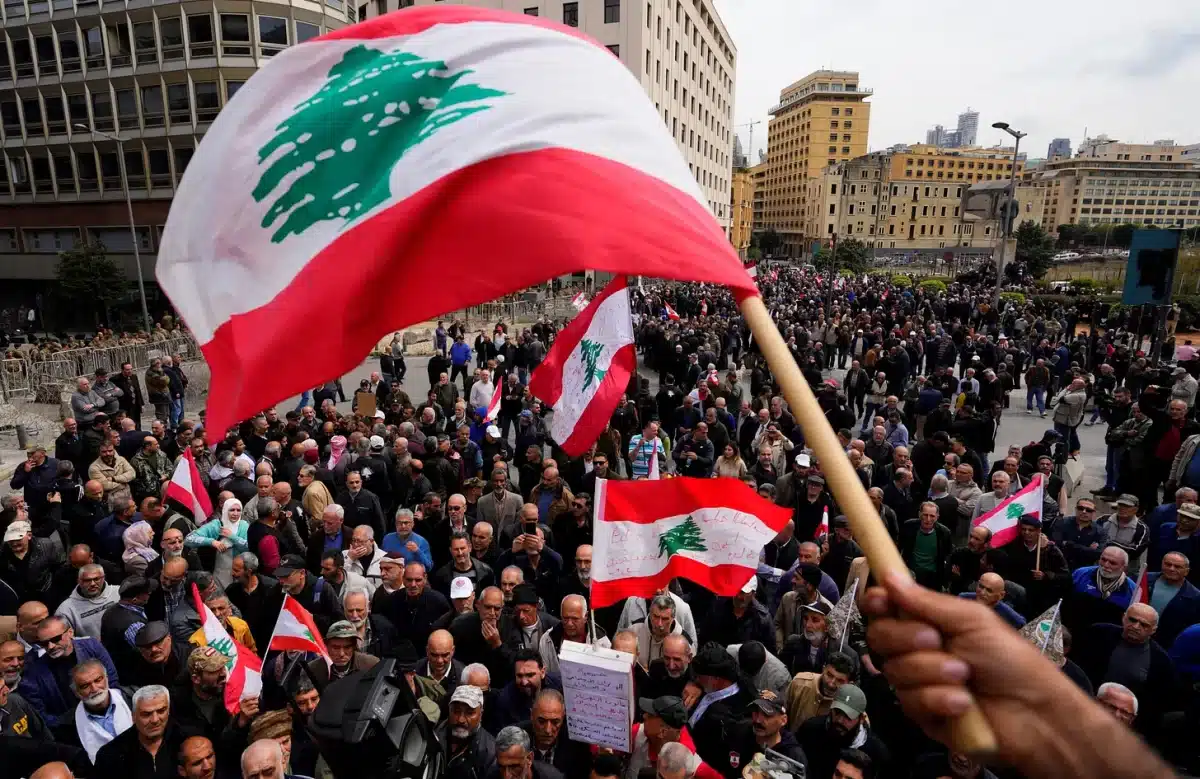
What time is it in Lebanon right now? It might depend on whether one is a Christian or a Muslim.
The Middle Eastern nation was set to switch clocks forward for daylight saving time early on Sunday (March 26), utilizing the schedule in Europe. But on Thursday, the Lebanese government suddenly announced it would delay the move until April 21. The reason? It would make it easier for Muslims observing Ramadan to fast until the sun sets, which would remain at around 6 p.m. instead of shifting to 7 p.m.
The last-minute nature of the decision quickly sparked criticism and announcements from pockets of the nation insisting they would ignore the government and move ahead. This two-timing system could add to the difficulties in a nation already struggling with economic collapse, political instability, and social unrest.
And in a country that’s about two-thirds Muslim and one-third Christian, the dueling time zones quickly sparked quips on social media about “Muslim time” and “Christian time.” Instead of the “9/8 Central” we see in ads for U.S. TV shows, this could be more like “9 Christian/8 Muslim.”
“The Christian community, like the entire Lebanese community, has been hugely impacted by this absurdity,” Nabil Costa, CEO of the Lebanese Society for Education & Social Development, told me. “They find themselves in an inextricable quandary: they have to abide by the daytime saving time in the predominately Christian areas, and by the regular winter time in the predominately Muslim communities.”
The last-minute time change decision came from the administration of caretaker Prime Minister Najib Mikati. He’s called a “caretaker” with limited powers because in the parliamentary system he failed to cobble together a full Cabinet amid divides after elections last year. Additionally, the parliament has been unable to elect the nation’s president, so that position has been vacant since October. Together, it creates an unprecedented political crisis for the 102-year-old republic.
Get cutting-edge reporting and analysis like this in your inbox every week by subscribing today!

Protesters demand better pay during a rally in Beirut, Lebanon, on March 22, 2023. (Hassan Ammar/Associated Press)
While the president of Lebanon is always a Maronite Christian, the prime minister is always a Sunni Muslim (and the speaker of the parliament is always a Shiite Muslim). The time change decision threatens to add to the sectarian political debates in a nation that experienced a religiously-charged civil war from 1975 to 1990. As Costa told me, he fears some politicians and clergy have decided to “seize this golden opportunity to resuscitate the sectarian divides, push their personal agendas, ‘two time’ people out of their rights, and conveniently distract them to cover up for another dirty swindle.”
As the nation woke up to divided time on Sunday, people tried to keep track of who was using which clock. The Maronite Church, an Eastern Catholic communion that claims over half of the Christians in Lebanon, officially rejected the government’s time change delay. Some major news channels also went ahead and moved their clocks forward an hour.
Even some government institutions aren’t following the prime minister’s decision to stay in winter time, with a few members in Mikati’s Cabinet arguing it wasn’t a valid decision. So the head of the public education system announced Sunday that schools would still shift to summer time.
The decision was also made too late for it to be recognized officially outside the country. The two cellphone networks in the country sent messages on Saturday telling people they would need to adjust their time settings to manual to keep their clock from automatically advancing to the programmed daylight saving time. Additionally, Middle East Airlines said flight times would be in daylight saving time to keep in sync with European airports.
“The incompetence of our government has gone to unprecedented levels,” Elie Haddad, president of Arab Baptist Theological Seminary in the Beirut suburb of Mansourieh, told me on Saturday amid uncertainty about what would happen. “Some churches tomorrow will be following the government, others will not. It’s going to be interesting to see how this will unfold.”
Haddad added the next day that “after much consideration and consultation,” the seminary decided to move their clocks forward “like most educational institutions and media outlets in Lebanon.”
The confusing time could add to the woes of the nation already experiencing its worst economy. The economic crisis that started in 2019, and was exacerbated by COVID-19 and the massive explosion in the Port of Beirut in 2020, has led to triple-digit inflation, unemployment nearly tripling, nominal GDP declining by more than one-third, a currency that’s lost more than 90% of its value, and more than half the nation living below the poverty line.
As complaints and criticisms mounted about the time conflict, the government suddenly announced today it would reverse the decision and officially move to daylight saving time on Wednesday. However, problems could linger. American University of Beirut noted in a statement that after having IT teams work “around the clock” to implement the delay in time, they now will need time to undo the changes. Thus, appointments at their medical center will likely remain on winter time for the rest of the week, even after the government moves ahead.
The Politics of Time
Wissam al-Saliby, a Lebanese Christian who serves as director of the World Evangelical Alliance’s Geneva Office (for human rights advocacy at the United Nations), told me he fears interfaith relations will be hurt by the chaos sparked by the time conflict.
“The initial government decision to postpone the adoption of the daylight saving time was last minute and therefore wrong in light of the technical complications,” he explained. “On the other hand, the sectarian incitement by Christian leaders is completely unacceptable, unjustifiable, and irresponsible.”
“Interfaith relations will suffer in a climate of sectarian incitement. The government decision played into the narrative that Muslims are now controlling the country,” he added. “What Lebanon needs is Christian leadership that is more Christ-centered than nationalistic.”
He offered an example on Twitter of how the two times were creating confusion and difficulties for families living in the pluralistic society.
“My sister just informed me that she will NOT change time b/c her daughter’s school & workplace in majority Muslim area will abide by government decision,” al-Saliby wrote. “Her husband WILL change the time because his shop is in majority Christian area. Catholic schools will change time.”
While some on social media joked that they would be able to time travel as they move from one part of society to another, others mentioned their concerns. Like how to get a restaurant reservation or cab at the right time, or the problem created by the fact that they had two appointments that were supposed to be an hour apart but are now set for the same time because of groups using different time zones.
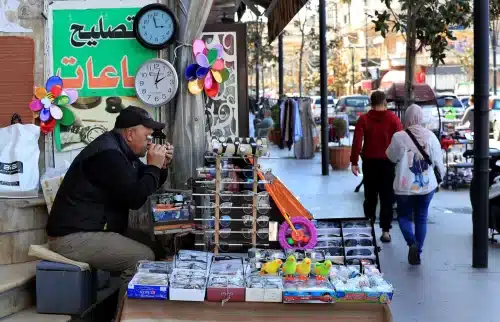
Salah Nasab, a Lebanese street vendor who also sells and repairs watches, sits next of two clocks that show different times in Lebanon, in the southern port city of Sidon, Lebanon, on March 27, 2023. (Mohammed Zaatari/Associated Press)
The last-minute nature of the decision on Thursday also meant pastors were in a race against time to decide when to hold services on Sunday. Kees van der Knijff, a Dutch missionary who serves as a theology professor at Arab Baptist Theological Seminary, said Saturday on Twitter he was “trying to figure out what time to preach tomorrow.” With the possibility that he might need two services instead of one if people don’t come at the same time, he joked, “Can’t be a coincidence that I will be preaching on Philippians 3: ‘It is no trouble for me to say the same things to you again…’”
But picking a time wasn’t a task to make lightly. Because of the way the government’s decision to delay the time change was made — and in light of the ongoing political divides — picking a time zone was inherently filled with socio-political implications. Merely by choosing a time for worship, a church had to get political.
“When it comes to churches, the first thing that came to mind was the scheduling of church services,” al-Saliby told me. “This is a really sad and terrible thing that evangelical churches and evangelical schools (like everyone else) are forced to take a decision that can be perceived as a political decision by Christians and by Muslims. The churches and schools in the most difficult situation are those serving to both Christians and Muslims, i.e. not present in majority Christian areas, but in or close to Muslim majority areas.”
With the two time zones ending on Wednesday, perhaps this will be a minor blip for a country suffering from significant challenges. Or perhaps the incident will further divide and inflame passions even after the clocks align. Only time will tell.



